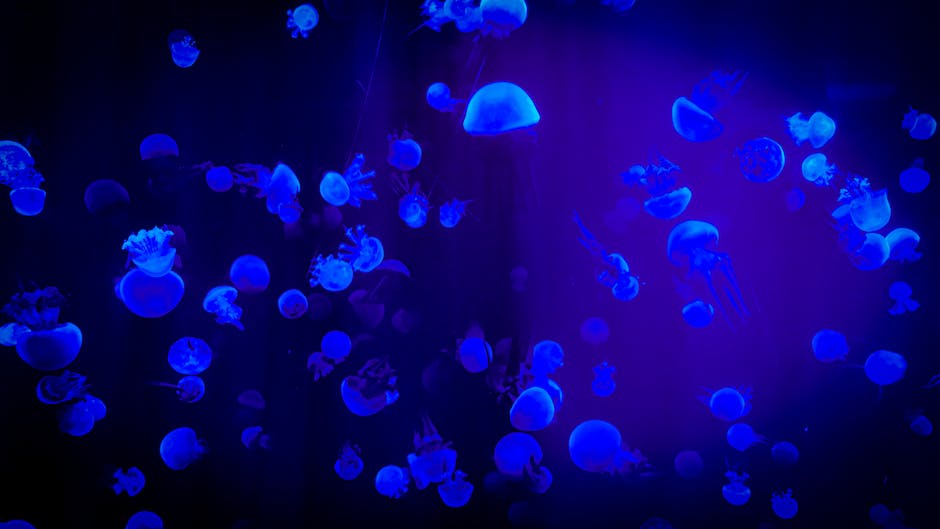Table of Contents
- Introduction
- The Role of Global Leadership in Promoting Ocean Conservation in 2023
- Innovative Strategies for Global Leadership in Ocean Conservation Efforts
- Challenges and Opportunities for Global Leadership in Ocean Conservation in 2023
- The Importance of Collaboration and Partnerships in Global Leadership for Ocean Conservation
- Q&A
- Conclusion
“Leading the Way: Uniting Nations for a Sustainable Ocean Future in 2023”
Introduction
In 2023, global leadership plays a crucial role in the fight for ocean conservation. As our planet faces increasing environmental challenges, the need for effective leadership and collective action has become more urgent than ever. This introduction explores the significance of global leadership in addressing the pressing issues surrounding ocean conservation in 2023.
The Role of Global Leadership in Promoting Ocean Conservation in 2023

The world is facing a critical moment in the fight for ocean conservation. With rising sea levels, increasing pollution, and the devastating effects of climate change, it is more important than ever for global leaders to take action. In 2023, global leadership will play a crucial role in promoting and implementing measures to protect our oceans.
One of the key responsibilities of global leaders is to set the agenda for international cooperation on ocean conservation. Through initiatives such as the United Nations Sustainable Development Goals, leaders can establish a framework for action and encourage countries to work together towards a common goal. By prioritizing ocean conservation on the global agenda, leaders can ensure that it receives the attention and resources it deserves.
Global leaders also have the power to influence national policies and regulations. By implementing strong environmental regulations and promoting sustainable practices, leaders can create a conducive environment for ocean conservation. This can include measures such as reducing plastic waste, implementing sustainable fishing practices, and establishing marine protected areas. Through their influence, leaders can encourage countries to adopt these policies and work towards a more sustainable future for our oceans.
In addition to setting the agenda and influencing national policies, global leaders can also play a crucial role in mobilizing resources for ocean conservation. This includes financial resources, technical expertise, and capacity-building support. By providing funding and resources to developing countries, leaders can help them implement effective conservation measures and build their capacity to address ocean-related challenges. This can include supporting research and monitoring efforts, investing in sustainable infrastructure, and providing training and education opportunities.
Furthermore, global leaders can use their platform to raise awareness about the importance of ocean conservation. By speaking out on the global stage, leaders can draw attention to the urgent need to protect our oceans and inspire individuals and communities to take action. This can include delivering speeches, participating in high-level conferences, and engaging with the media. By using their influence and visibility, leaders can amplify the message of ocean conservation and mobilize support from a wide range of stakeholders.
Finally, global leaders can also play a crucial role in fostering international cooperation and collaboration. By facilitating dialogue and partnerships between countries, leaders can encourage the sharing of best practices, knowledge, and resources. This can include organizing international conferences and summits, establishing collaborative platforms, and supporting regional initiatives. By promoting collaboration, leaders can ensure that efforts to protect our oceans are coordinated and effective, and that no country is left behind.
In conclusion, global leadership will be instrumental in promoting ocean conservation in 2023. Through setting the agenda, influencing national policies, mobilizing resources, raising awareness, and fostering international cooperation, leaders can drive meaningful change and ensure the long-term health and sustainability of our oceans. The fight for ocean conservation requires a collective effort, and global leaders have a crucial role to play in leading the way towards a more sustainable future.
Innovative Strategies for Global Leadership in Ocean Conservation Efforts
Global Leadership and the Fight for Ocean Conservation in 2023
Innovative Strategies for Global Leadership in Ocean Conservation Efforts
The year 2023 marks a critical turning point in the fight for ocean conservation. As the world grapples with the devastating effects of climate change and the depletion of marine resources, global leadership has become more crucial than ever. In this article, we will explore innovative strategies that can be employed by leaders around the world to address the pressing challenges facing our oceans.
One of the key strategies for global leadership in ocean conservation is the establishment of marine protected areas (MPAs). These areas serve as sanctuaries for marine life, allowing ecosystems to recover and thrive. By designating MPAs, leaders can demonstrate their commitment to preserving biodiversity and ensuring the long-term health of our oceans. Furthermore, MPAs can serve as models for sustainable fishing practices, providing a blueprint for other regions to follow.
Another innovative strategy is the promotion of sustainable seafood consumption. Leaders can play a crucial role in raising awareness about the importance of choosing sustainable seafood options and supporting responsible fishing practices. By partnering with local communities, businesses, and NGOs, leaders can create initiatives that educate consumers and incentivize sustainable choices. This not only protects marine ecosystems but also supports the livelihoods of those who depend on the ocean for their sustenance.
Investing in research and technology is also essential for effective global leadership in ocean conservation. By funding scientific studies and technological advancements, leaders can gain a deeper understanding of the challenges facing our oceans and develop innovative solutions. For example, advancements in satellite technology can help monitor illegal fishing activities and enforce regulations. Additionally, research can provide insights into the impacts of climate change on marine ecosystems, enabling leaders to implement targeted mitigation strategies.
Collaboration and partnerships are vital components of global leadership in ocean conservation. No single country or organization can tackle these challenges alone. Leaders must work together, sharing knowledge, resources, and best practices. International agreements, such as the Paris Agreement and the United Nations Sustainable Development Goals, provide frameworks for collaboration and serve as platforms for global leaders to come together and address the urgent issues facing our oceans.
Education and public engagement are also critical in the fight for ocean conservation. Leaders can use their platforms to raise awareness about the importance of protecting our oceans and inspire action. By incorporating ocean conservation into school curricula and organizing public events, leaders can empower individuals to make a difference in their daily lives. Furthermore, leaders can leverage social media and other communication channels to reach a wider audience and foster a global movement for ocean conservation.
Finally, financial support is essential for effective global leadership in ocean conservation. Leaders must allocate adequate funding to support conservation efforts, research, and the implementation of sustainable practices. By investing in the protection of our oceans, leaders can ensure a sustainable future for generations to come.
In conclusion, global leadership plays a crucial role in the fight for ocean conservation in 2023 and beyond. By employing innovative strategies such as the establishment of marine protected areas, promoting sustainable seafood consumption, investing in research and technology, fostering collaboration and partnerships, engaging the public, and providing financial support, leaders can make a significant impact on the health and sustainability of our oceans. The time for action is now, and it is up to global leaders to rise to the challenge and protect one of our planet’s most valuable resources.
Challenges and Opportunities for Global Leadership in Ocean Conservation in 2023
Challenges and Opportunities for Global Leadership in Ocean Conservation in 2023
Ocean conservation has become an urgent global issue in recent years, as the health of our oceans directly impacts the well-being of our planet. In 2023, global leadership will face both challenges and opportunities in their efforts to protect and preserve our oceans.
One of the biggest challenges that global leaders will face is the increasing threat of climate change. Rising sea levels, ocean acidification, and the loss of biodiversity are all consequences of climate change that directly impact the health of our oceans. Global leaders will need to take decisive action to reduce greenhouse gas emissions and mitigate the effects of climate change on our oceans.
Another challenge that global leaders will face is the issue of overfishing. Overfishing has led to the depletion of fish stocks and the collapse of marine ecosystems. Global leaders will need to implement sustainable fishing practices and enforce regulations to ensure the long-term viability of our oceans’ resources.
Illegal, unreported, and unregulated (IUU) fishing is another pressing challenge that global leaders will need to address. IUU fishing not only threatens the sustainability of fish stocks but also undermines the livelihoods of coastal communities that depend on fishing for their income. Global leaders will need to strengthen international cooperation and improve monitoring and enforcement mechanisms to combat IUU fishing effectively.
Plastic pollution is yet another challenge that global leaders will need to tackle in 2023. The accumulation of plastic waste in our oceans has reached alarming levels, causing harm to marine life and ecosystems. Global leaders will need to promote the reduction, reuse, and recycling of plastic, as well as invest in innovative solutions to clean up existing plastic pollution.
Despite these challenges, there are also opportunities for global leadership in ocean conservation. One such opportunity is the growing awareness and concern among the general public about the state of our oceans. This increased awareness has led to a demand for action and has put pressure on global leaders to take meaningful steps towards ocean conservation.
Advancements in technology also present opportunities for global leaders to make significant progress in ocean conservation. Remote sensing, satellite imagery, and data analytics can provide valuable insights into the health of our oceans and help identify areas that require immediate attention. Global leaders can leverage these technologies to develop evidence-based policies and strategies for effective ocean conservation.
International collaborations and partnerships are crucial in addressing the challenges of ocean conservation. Global leaders can work together to share knowledge, resources, and best practices, and coordinate efforts to protect our oceans. By fostering cooperation and collaboration, global leaders can amplify their impact and achieve more significant results in ocean conservation.
In conclusion, global leadership in ocean conservation in 2023 will face both challenges and opportunities. Climate change, overfishing, IUU fishing, and plastic pollution are some of the pressing challenges that global leaders will need to address. However, growing public awareness, advancements in technology, and international collaborations present opportunities for global leaders to make a positive impact on the health of our oceans. By taking decisive action and implementing sustainable practices, global leaders can ensure the long-term viability of our oceans and protect the well-being of our planet.
The Importance of Collaboration and Partnerships in Global Leadership for Ocean Conservation
The fight for ocean conservation has become a pressing global issue in recent years. With the increasing threats of climate change, overfishing, and pollution, it is crucial for global leaders to come together and collaborate in order to protect our oceans. In 2023, the importance of collaboration and partnerships in global leadership for ocean conservation cannot be overstated.
One of the main reasons why collaboration is essential in global leadership for ocean conservation is the interconnectedness of our oceans. The world’s oceans are vast and interconnected, with currents and ecosystems that span across borders. This means that the actions of one country can have far-reaching consequences for the health of the entire ocean. In order to effectively address the challenges facing our oceans, it is necessary for global leaders to work together and coordinate their efforts.
Collaboration also allows for the sharing of knowledge and resources. No single country or organization has all the answers when it comes to ocean conservation. By collaborating and partnering with others, global leaders can tap into a wealth of expertise and experience. This can lead to more effective and innovative solutions to the challenges we face. Additionally, collaboration allows for the pooling of resources, which can be particularly important for developing countries that may lack the necessary funding and infrastructure to tackle ocean conservation on their own.
Partnerships are another crucial aspect of global leadership for ocean conservation. By forming partnerships with various stakeholders, such as governments, NGOs, and the private sector, global leaders can leverage their collective influence and resources. Partnerships can also help to bridge the gap between different sectors and foster a more holistic approach to ocean conservation. For example, partnerships between governments and the private sector can lead to the development of sustainable business practices that benefit both the environment and the economy.
Furthermore, partnerships can help to build political will and create a sense of urgency around ocean conservation. By bringing together diverse stakeholders, global leaders can demonstrate that ocean conservation is not just an environmental issue, but also a social and economic one. This can help to mobilize support and resources at both the national and international levels. Additionally, partnerships can help to raise awareness and educate the public about the importance of ocean conservation, which is crucial for generating public support and driving change.
In conclusion, collaboration and partnerships are essential in global leadership for ocean conservation. The interconnectedness of our oceans, the sharing of knowledge and resources, and the ability to leverage collective influence and resources all highlight the importance of working together. By collaborating and forming partnerships, global leaders can address the challenges facing our oceans more effectively and develop innovative solutions. Furthermore, partnerships can help to build political will, raise awareness, and mobilize support for ocean conservation. In 2023, it is crucial for global leaders to recognize the importance of collaboration and partnerships in the fight for ocean conservation. Only by working together can we ensure the health and sustainability of our oceans for future generations.
Q&A
1. What is the significance of global leadership in the fight for ocean conservation in 2023?
Global leadership is crucial in the fight for ocean conservation in 2023 as it sets the direction and priorities for international efforts to protect and sustainably manage the world’s oceans.
2. What are some key challenges faced in ocean conservation in 2023?
Some key challenges in ocean conservation in 2023 include overfishing, marine pollution, habitat destruction, climate change impacts, and the need for sustainable resource management.
3. How can global leadership contribute to addressing these challenges?
Global leadership can contribute to addressing these challenges by promoting international cooperation, setting targets and policies, implementing effective regulations, supporting scientific research, and raising awareness about the importance of ocean conservation.
4. What are the potential benefits of successful global leadership in ocean conservation?
Successful global leadership in ocean conservation can lead to healthier and more resilient marine ecosystems, sustainable fisheries, reduced pollution, increased biodiversity, improved livelihoods for coastal communities, and a more sustainable future for our planet.
Conclusion
In conclusion, global leadership plays a crucial role in the fight for ocean conservation in 2023. As the world faces increasing threats to marine ecosystems, it is imperative for leaders to prioritize sustainable practices, implement effective policies, and foster international cooperation. By addressing issues such as overfishing, pollution, and climate change, global leaders can contribute to the preservation and restoration of our oceans, ensuring their health and biodiversity for future generations.




